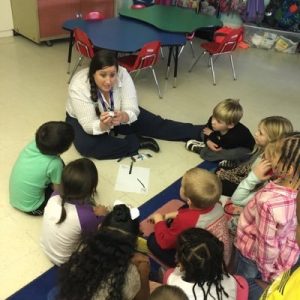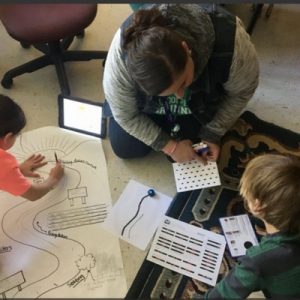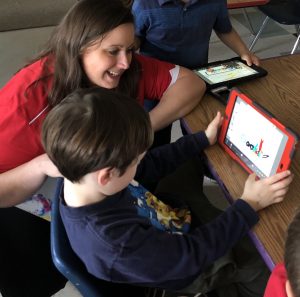At 2 PM on Monday, March 23rd, Governor Ralph Northam announced that Virginia's public schools will close for the rest of the school year. Amy Stewart and Nicci Dowd, co-chairs of VSTE's Inclusion Task Force, offer guidance for making sure we are using technology to meet the needs of all our students.
As our world has changed over the last couple of weeks, we have all come to understand the importance of instructional technology to our educational systems. With the closure of schools, many school divisions quickly shifted to online instruction. As we venture into this largely unknown territory, there have been profound and on-going discussions regarding how to reach the diverse student populations we all serve. Students are preparing to "work from home," and we have to make sure that we are diligent in providing them with the appropriate resources and opportunities.
What better time to ignite this conversation on how instructional technology can support teachers and their students regardless of cultural differences and/or ability levels? That is ultimately the beauty of instructional technology; it makes differentiation possible on a grand scale and we have an opportunity to practice it now.
How do we make sure differentiated online resources are provided to students? There is still much work to be done to ensure differentiation. Even with the assistance of instructional technology, it will not be quick, but it is worth it so that we can make sure we are reaching all students during this critical time.
Here are some helpful tips as teachers prepare to support their students;
- Have you been online with your students this past week? If so, take a moment to do a quick check. Have ALL your students been participating? If not, who is missing? Is there another way besides the Internet to reach out to them? Not all students will be at home with adults, and many may be taking care of younger household members. And, as we know, there is a wide gap in access from broadband to devices to support.
- Even for students who have some kind of access, using it to connect with you can be a challenge. Think about how much data usage the resource requires from a student; many students will be using hotspots or mobile phones to access materials and may be sharing those devices and data plans with multiple family members. As we advised last week, keep it simple and low threshold.
- It is also critical to remember that access to broadband and devices does not ensure equitable instruction or learning. We must continue to make sure that materials are accessible to all students. Families may benefit from guides on how to use the accessibility features of their home devices. Make sure that online resources you choose allow for text to
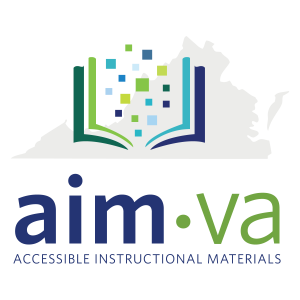 speech, enlarging text, multiple reading levels, and translation. If the resource does not provide these things, be sure to provide access to an alternative resource. AIM-VA provides accessible instructional materials to eligible Virginia K-12 students who have an Individualized Education Program (IEP) and are unable to access traditional print.
speech, enlarging text, multiple reading levels, and translation. If the resource does not provide these things, be sure to provide access to an alternative resource. AIM-VA provides accessible instructional materials to eligible Virginia K-12 students who have an Individualized Education Program (IEP) and are unable to access traditional print. - Students have a wide range of technology skills so keep that in mind as you select resources. How many "clicks" does it take to get to the resource and is that path clear? If students are using a learning management system or dashboard, do they know how to use their single sign on or other login information? Where do they go to retrieve that information? How easy is it for students and family to access school division technology support?
- Finally, make sure students continue to have access to content that reflects a wide assortment of people, cultures, and situations. Be sure to introduce your students to the many authors and industry leaders providing time on their social media platforms.
As the crisis continues to unfold, educators are taking the lead on supporting students and their families. VSTE has opened a Facebook group where we would love to hear about what you and your school division are doing to ensure learning equity for all students. We can continue to learn, share and grow together.
Nicci Dowd is an Assistive Technology Training and Technical Specialist for AIM
Amy Stewart is Supervisor of Instructional Technology and Extended Learning for Petersburg Public Schools. She is treasurer of the Greater Richmond Area Education Technology Consortium (GRAETC), VSTE's partner organization.

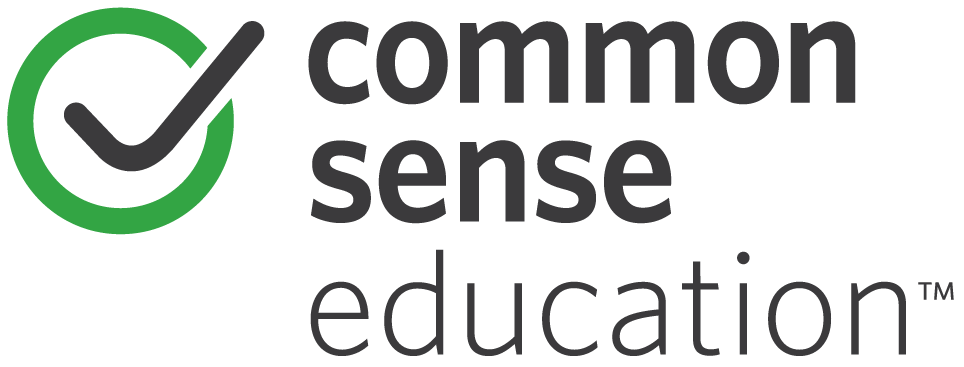 Fact checking is just the beginning. To teach news literacy in the classroom today, you'll need to give students a strong foundation in cultural awareness and critical thinking. Common Sense Education gathered best-in-class activities, discussion guides, and more in this all-new
Fact checking is just the beginning. To teach news literacy in the classroom today, you'll need to give students a strong foundation in cultural awareness and critical thinking. Common Sense Education gathered best-in-class activities, discussion guides, and more in this all-new  Tonya Coffey has a passion for all things technology, especially finding creative ways to utilize technology to bridge the gap between the classroom, home, and community. She is currently an ITRT for Augusta County Public Schools. One way she connects with others is through her conference presentations that include VSTE, VSRA, Brainstorm, JMU Kappa Delta Pi, and VMI STEM. She earned her Educational Specialist Degree (2018) from Liberty University and is currently a Liberty University doctoral candidate in Curriculum and Instruction with an endorsement in School Administration. She is a dedicated advocate for teachers. Her skillful coaching combines technical expertise and interpersonal relationships allowing her to connect with even the most reluctant or timid of educators.
Tonya Coffey has a passion for all things technology, especially finding creative ways to utilize technology to bridge the gap between the classroom, home, and community. She is currently an ITRT for Augusta County Public Schools. One way she connects with others is through her conference presentations that include VSTE, VSRA, Brainstorm, JMU Kappa Delta Pi, and VMI STEM. She earned her Educational Specialist Degree (2018) from Liberty University and is currently a Liberty University doctoral candidate in Curriculum and Instruction with an endorsement in School Administration. She is a dedicated advocate for teachers. Her skillful coaching combines technical expertise and interpersonal relationships allowing her to connect with even the most reluctant or timid of educators. Fielding is always excited to talk about ways to integrate technology into the classroom. As the Instructional Technology Coach at Woodbridge Senior High School, Katie has quickly found her niche in sharing instructional practices with her colleagues. She works hard to provide digital equity for students at her school; making sure SPED and ELL students have access to assistive technologies. Katie likes collaborating with fellow Prince William County ITC’s to improve instructional practices district-wide. She takes joy in building capacity in teachers and students so they can fully participate in the digital world. Katie has a special interest in using educational technology to improve homebound instruction for chronically ill students. She sees educational technology as a bridge that can join home, hospital, and school. Katie’s life with cystic fibrosis has informed her concern for this often-overlooked demographic. This interest was also the focus of her 2018/19 Google Innovator project. You can learn more about it at
Fielding is always excited to talk about ways to integrate technology into the classroom. As the Instructional Technology Coach at Woodbridge Senior High School, Katie has quickly found her niche in sharing instructional practices with her colleagues. She works hard to provide digital equity for students at her school; making sure SPED and ELL students have access to assistive technologies. Katie likes collaborating with fellow Prince William County ITC’s to improve instructional practices district-wide. She takes joy in building capacity in teachers and students so they can fully participate in the digital world. Katie has a special interest in using educational technology to improve homebound instruction for chronically ill students. She sees educational technology as a bridge that can join home, hospital, and school. Katie’s life with cystic fibrosis has informed her concern for this often-overlooked demographic. This interest was also the focus of her 2018/19 Google Innovator project. You can learn more about it at 
